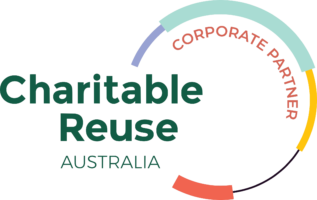A retrospective – 10 years in waste consulting
By: Mike Ritchie, MRA Consulting Group
xf

.
I thought that on the 10th anniversary of MRA Consulting Group being established, I should do a bit of a retrospective on waste reform. In the interests of space, it is just the key points.
Before I do that, I just want to thank all of our clients, friends and colleagues for supporting MRA over these first ten years. Appreciated.
Firstly the good:
- We have exceeded 50% national recycling rates. We now recycle more than we landfill. We are actually at 56% recycling and when you take into account that we don’t have an Energy from Waste system, that compares very favourably with Europe.
- The rise of the landfill levies around the country has provided the head-room for recyclers to compete with under-priced landfills. It has driven the growth in recycling from 7% in 1990 to 56% today.
- The community is awake to waste. Every fortnight over 95% of Australians make use of their kerbside recycling bin to minimise waste to landfill. Community acceptance of new Container Deposit Schemes should be encouraging Environment Ministers to be more ambitious about waste reform.
- We have, for the first time since Federation, a Commonwealth Minister for Recycling and Waste Minimisation who can talk knowledgeably about a circular economy and who is working with State Environment Ministers towards systemic regulatory and market reform to drive recycling.
- There is now recognition that recycling and resource recovery are strong greenhouse gas mitigation activities. Diverting organics from landfill and recovering the embodied energy of materials through recycling already reduces Australia’s GHG emissions by over 10%.
- We now talk about the economics of waste in ways we did not a decade ago. There is now a clearer understanding that cheap landfill competes with recycling for consumption of materials, that recyclables need markets and that we need to create economic drivers to encourage investment and jobs in recycling. It will not happen by itself.
- We are seeing the emergence of an integrated waste management system that includes best practice domestic and commercial recycling, organics and the roll out of FOGO bins in Perth, Adelaide, Melbourne and rural NSW, extended producer responsibility (EPR) schemes for difficult streams, energy from waste for high calorific residuals and landfill for low calorific residuals and hazardous materials such as asbestos.
- The finance and business sector are keen to invest in waste particularly given the volatility in the rest of the economy.
Now the not so good:
- Our recycling rate is 56% against a national target of 80% by 2030. That means we need to recycle an additional 12 MT of the 21MT that we currently landfill. To do that in 9 years would be heroic.
- The systemic regulatory and market reform mentioned positively above is happening FAR TOO SLOWLY. For example Western Sydney alone needs $2b worth of investment now to achieve the Targets. That is over 30 new pieces of infrastructure to sort and process recovered materials.
- We still don’t have the right regulatory and pricing signals in Australia to make recycling the default solution over landfilling. 44% of all generated waste is still landfilled and more so in regional Australia.
- We are losing about 10MT of organics to landfill. It represents over 50% of total waste to landfill. Farmers need our organics as compost more than our landfills do. But still we do not have the market mechanisms to make recycling of organics the default answer. The solution is a requirement for dedicated organics collections from households and businesses. Europe has required collection and processing of organics separately from residual waste for two decades.
- There is not a single Government employee/executive in any State or Commonwealth Government who’s job description says “Achieve the National Waste Targets”. Why not? If the Targets are a priority, someone needs to be put in charge.
- The ban on export of mixed plastic, glass, tyres and fibre has provided the impetus for investment and policy reform in waste. But the market incentives to invest now in reprocessing are weak or non-existent.
- The removal of the carbon price and the emissions trading scheme has left recyclers worse off and landfills better off. If running cheap landfills is the objective of governments, then OK. But if creating a circular economy that recycles materials and reduces the one way flow to landfill, then we need to properly price greenhouse gas emissions. The recycling sector could achieve a further reduction of emissions of 50MT with the right market signals including capturing landfill gas, composting organics, sequestering organics in soil.
- Our waste generation rate rises inexorably with economic growth. Both are rising at 4 x the rate of population growth. We have been singularly unsuccessful in decoupling waste growth from economic growth. So the burden has fallen almost exclusively on improved recycling. To create a truly circular economy we need to focus on design of products. We need to make sure they can be repaired, repurposed and reused in the economy before recycling even gets a look in. Apart from a current program to halve food waste creation and recycled content in packaging, we have done virtually nothing about reducing the creation of waste.
- There are 3 legs to the Circular Economy stool – design, repair and recycling. We have done nothing with design and repair. Anyone with a new mousetrap can release it to the economy without consideration of its end of life fate. Europe is a decade ahead of Australia.
- There is still little market “pull” for recycled content. Consequently the market economics for recycled content are still too weak to transform the economy. There are plenty of good stories but not an economy wide shift.
- Governments still go to the soft options rather than the key economic drivers of reform – market pricing and regulation. We need more and better EPR schemes, landfill externality pricing, purchasing policies, enforcement, bans on materials to landfill and most importantly a strategic approach to achieving the targets.
After 10 years in consulting and 30 years in the industry I can confidently say we are on the right path. We are getting there. The ‘ship of state’ is heading in the right direction – towards waste reform and the circular economy (rather than cheap and underpriced landfill for everything). It is just far too slow and not all governments are yet on board. Climate change won’t be forgiving. We need to get our economic act together. Waste is one important piece of the economic and climate change challenge. At least we are one sector heading in the right direction.
MRA is very grateful that we have been able to work with clients, governments, industry and communities, in driving that change over the last decade. Let’s hope that in 9 years (2030) we can look back and say we achieved 80% diversion from landfill and helped put Australia on a more sustainable economic path.
Mike Ritchie, is the Managing Director of MRA Consulting Group.



